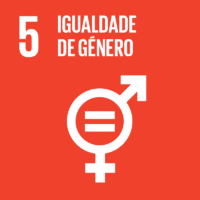Ciência_Iscte
Publicações
Descrição Detalhada da Publicação
Gender differences in psychosocial determinants of self-perceived health among Portuguese older adults in nursing homes
Título Revista
Aging and Mental Health
Ano (publicação definitiva)
2019
Língua
Inglês
País
Países Baixos (Holanda)
Mais Informação
Web of Science®
Scopus
Google Scholar
Esta publicação não está indexada no Overton
Abstract/Resumo
Objectives: Self-perceived health declines with age, varies by gender and is a predictor of mortality, morbidity, physical and psychological functioning. However, gender differences in health and illness perception are complex and not yet fully understood. This study aimed to explore gender-related differences in psychosocial determinants of self-perceived health among older adults living in nursing homes.
Method: Nationwide face-to-face survey of the Portuguese population aged 65 and over. A representative sample of nursing homes residents was obtained through a multistage cluster random sampling of nursing homes, stratified by main Portuguese administrative regions (NUTS II).
Results: Overall, 1186 nursing homes residents voluntarily enrolled in this study (participation rate, 93%) and a total of 515 participants (70.1% women) were considered to have adequate cognitive functioning to answer all questionnaires. A significant association between self-rated health and gender was found: 90.6% of all women (95% CI: 85.7—93.9) and 82.3% of all men (95% CI: 72.9—88.9) rated their health as less than good (p = 0.023). Gender-stratified analyses showed differences in psychosocial determinants of self-perceived health. While symptoms of depression and loneliness feelings were the major psychosocial determinants of poor self-perceived health among women, age and subjective financial well-being were the only determinants among men.
Conclusion: Factors associated with perceived health, as representative of healthy ageing, were identified by gender, leading to future avenues for fruitful investigation. The acknowledgement of interpersonal and socioeconomic factors that determine the experience of ageing at a national level is crucial to improve the health of elders.
Agradecimentos/Acknowledgements
--
Palavras-chave
Gender,Subjective health,Social determinants of health,Ageing,Nursing homes
Classificação Fields of Science and Technology
- Medicina Clínica - Ciências Médicas
Registos de financiamentos
| Referência de financiamento | Entidade Financiadora |
|---|---|
| 136SI5 | Public Health Initiatives |
Contribuições para os Objetivos do Desenvolvimento Sustentável das Nações Unidas
Com o objetivo de aumentar a investigação direcionada para o cumprimento dos Objetivos do Desenvolvimento Sustentável para 2030 das Nações Unidas, é disponibilizada no Ciência_Iscte a possibilidade de associação, quando aplicável, dos artigos científicos aos Objetivos do Desenvolvimento Sustentável. Estes são os Objetivos do Desenvolvimento Sustentável identificados pelo(s) autor(es) para esta publicação. Para uma informação detalhada dos Objetivos do Desenvolvimento Sustentável, clique aqui.

 English
English



